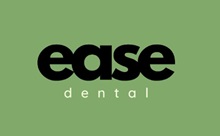Getting braces at an early age is often recommended by orthodontists to address dental and jaw problems early on, which can help prevent more serious issues in the future. Here are some important points about early braces placement.
1. Ideal Age for Consultation
- A consultation with an orthodontist is usually recommended around the age of 7 when children have a mix of baby and permanent teeth. This allows the orthodontist to detect potential issues with jaw growth and teeth alignment early on.
2. Benefits of Early Age Braces Placement
- Correcting Jaw Growth: In children, the jawbones are still developing, early age braces making it easier to correct growth issues such as overbite, underbite, and cross bite.
- Preventing More Severe Dental Problems: Early intervention can prevent more severe problems, such as severe crowding or teeth growing in the wrong places.
- Reducing Future Treatment Duration: Braces at a young age can reduce or even eliminate the need for more extensive treatment later on.
- Avoiding Tooth Extraction: Early intervention often creates enough space for permanent teeth, reducing the need for tooth extractions in the future.
3. Types of Early Orthodontic Treatment
- Partial Braces: Sometimes used to correct a few misaligned teeth.
- Functional Appliances: Such as jaw expanders, which help widen the upper or lower jaw.
- Removable Appliances: Such as retainers specifically designed to guide jaw growth or correct bad habits like thumb sucking.
4. When Are Braces Necessary?
- Braces may be needed if the child has issues such as:
- Crowded or overly spaced teeth.
- Improper bite (overbite, underbite, crossbite).
- Early or late loss of baby teeth.
- Difficulty speaking or chewing properly.
- Bad habits such as thumb sucking or tongue thrusting that affect the teeth.
5. Considerations for Parents
- Cost: Getting braces at an early age can be a significant investment. However, the costs are often lower compared to more complex orthodontic treatments in adulthood.
- Commitment to Care: Braces require a commitment to maintaining oral hygiene and regular visits to the orthodontist for adjustments.
With the right treatment at an early age, many orthodontic problems can be addressed more easily, giving the child a chance to have healthy and aligned teeth as they grow. If you are considering braces for your child, it’s advisable to have an initial consultation with an Getting braces at an early age is often recommended by orthodontists to address dental and jaw problems early on, which can help prevent more serious issues in the future. Here are some important points about getting braces at a young age: for evaluation and appropriate treatment recommendations.
